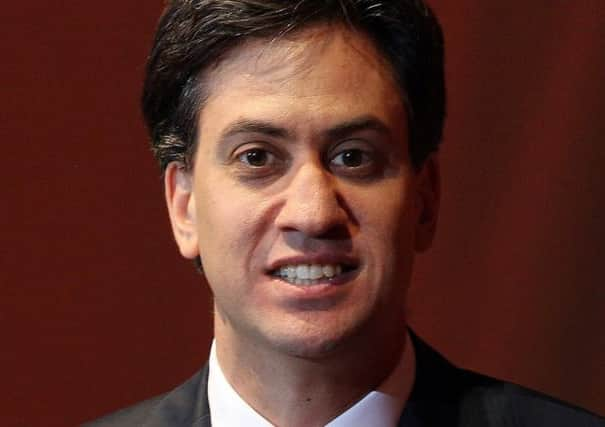Miliband vows to let public sector run train franchises


Miliband said Labour would let the public sector challenge private operators to run rail franchises, in what would be a partial reversal of the controversial privatisation.
The Labour leader, in a keynote speech yesterday, said the shake-up would improve the service for passengers and prevent state-owned foreign companies competing to run trains in the UK without competition from a British equivalent.
Advertisement
Hide AdAdvertisement
Hide AdThe move was announced as Miliband attempted to distance himself from the New Labour era of Tony Blair and Gordon Brown, promising the party would tackle inequality while taking a responsible approach to the nation’s finances in a time of continuing pressure on public spending.
Labour sources said an agreement on the rail policy was “pretty much a done deal” at the party’s National Policy Forum in Milton Keynes, which is thrashing out the details of plans that could find their way into Miliband’s manifesto next year.
Miliband said the decision to privatise the rail network in the early 1990s was based on “dogma” rather than for the benefit of passengers. He said: “Too often, we know the experience, it put the profits into the private sector and put the risk on to the government.
“We know East Coast has worked in public hands, so – on the basis of value for money – let’s extend that idea and let the public sector challenge to take on new lines.”
He made the pledge with less than a year to go before the general election, with Labour holding a slender lead over the Tories in most polls.
Miliband also set out a plan for a “new settlement” with the British people, with measures aimed at tackling inequality but accepting that Labour could not return to being a party of “big spending”. It was, he claimed, a “programme which has at its heart our commitment to build a wholly new economy, fit for the 21st century”. He said: “It is a plan for economic transformation, a new settlement that is not less ambitious because we live in a time of scarcity, but is more radical, more ambitious because it sets a new direction for Britain.”
It was “moving on from New Labour” but “not going back to old Labour”. He said the party was “moving on from a belief that rising inequality is just a fact of life” or that “there is nothing we can do about markets that aren’t fair”.